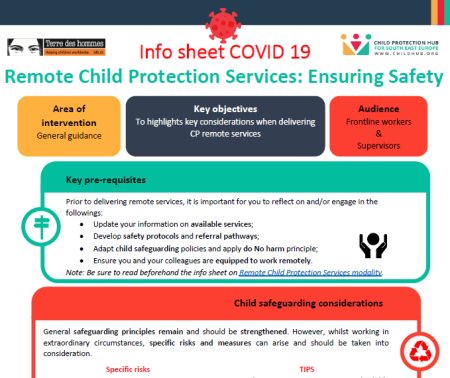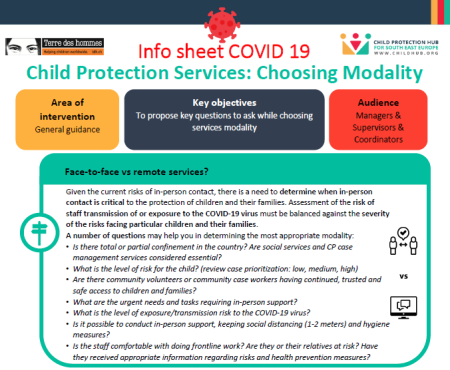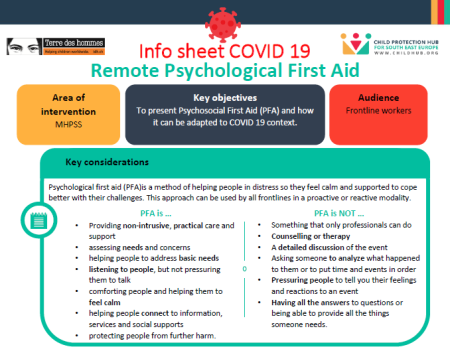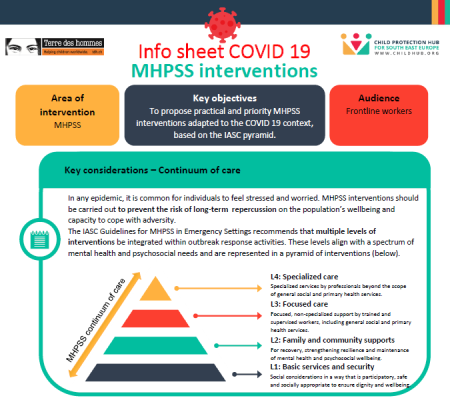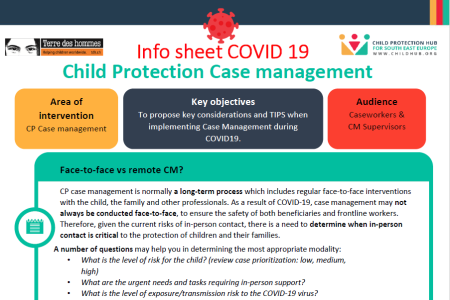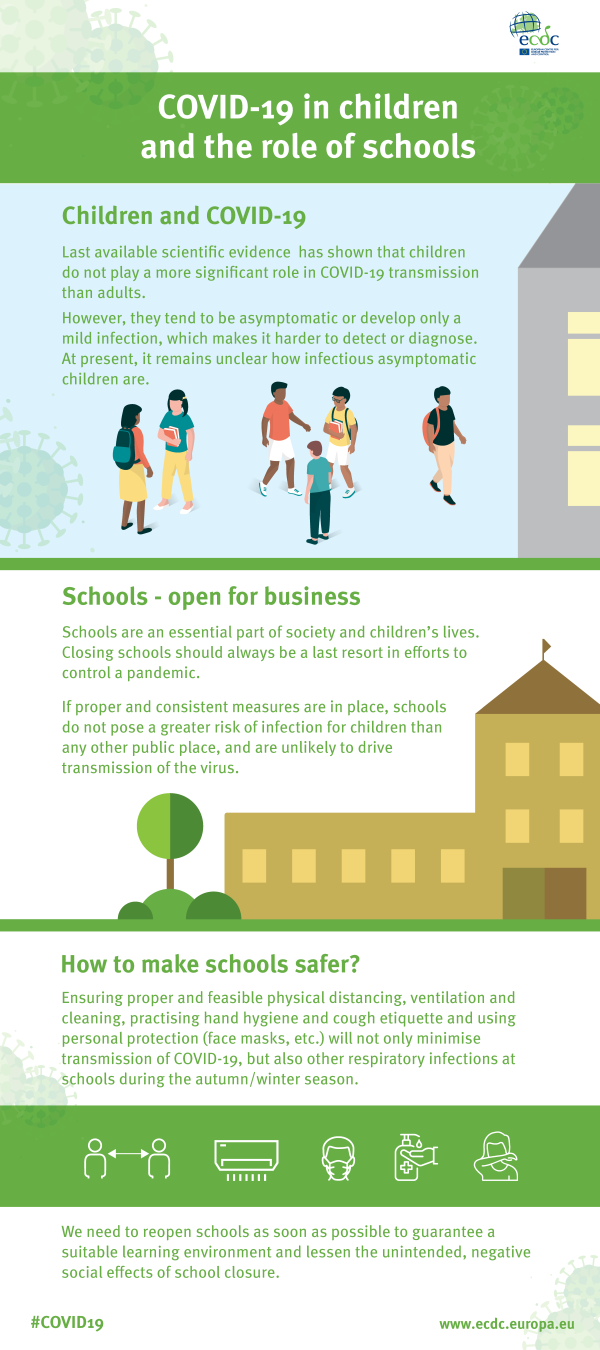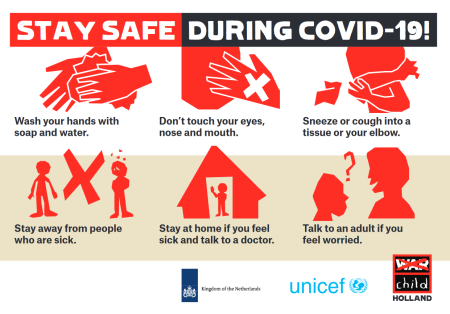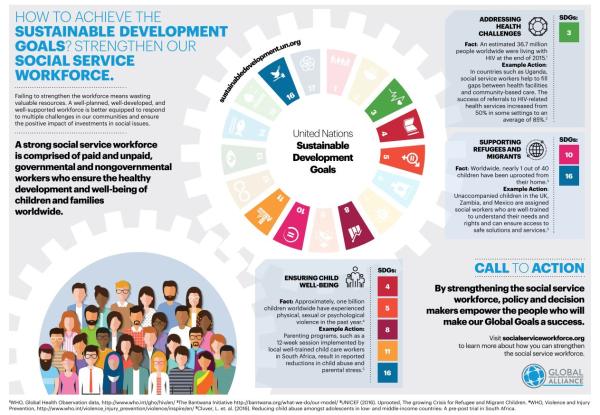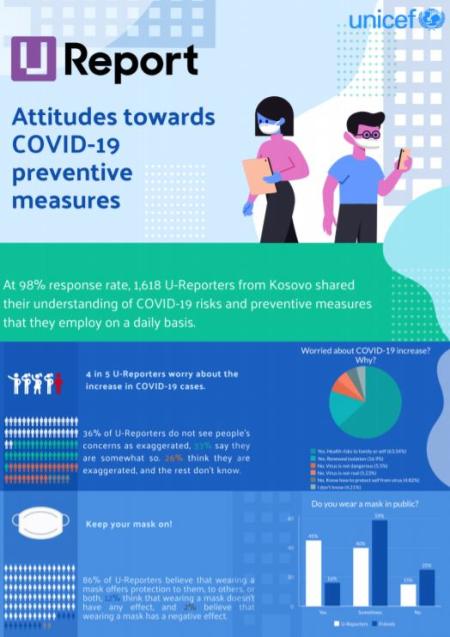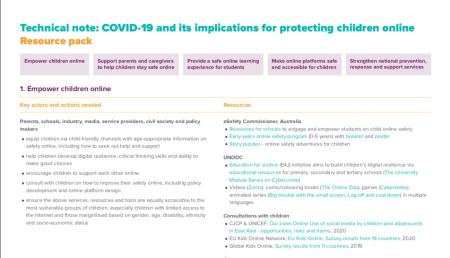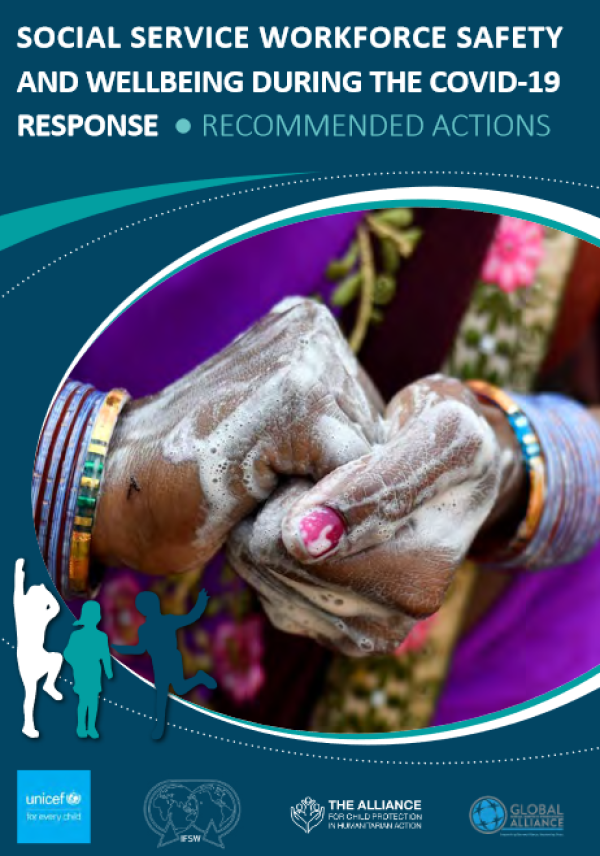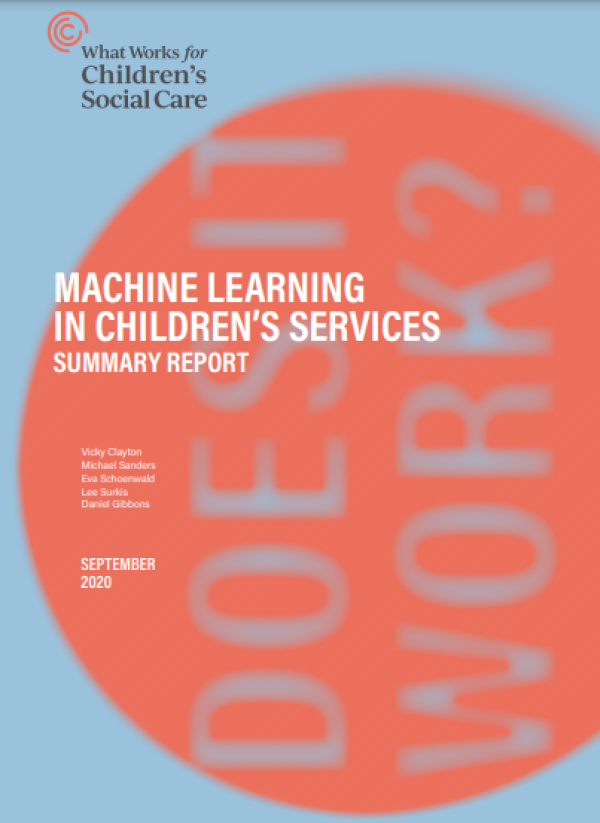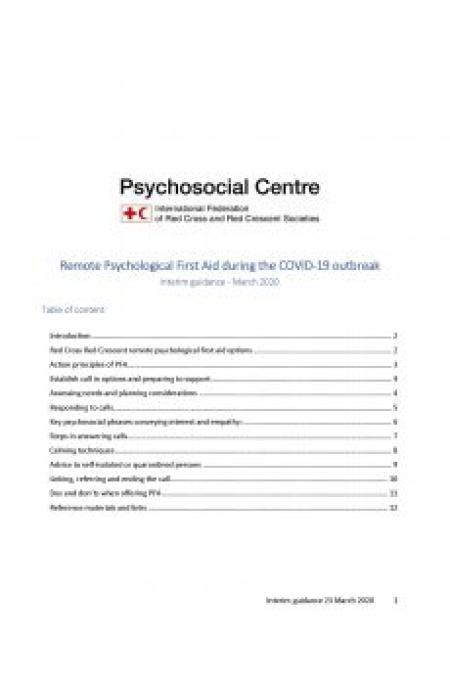
This infosheet highlights key considerations when delivering CP remote services.
You will find the following informations:
- Key pre-requisites;
- Child safeguarding considerations;
- How do you ensure privacy and confidentiality;
- Communication considerations;
- Dealing with: high psychosocial distress, fear, frustration/angriness.
This infosheet is part of a series and has been developed in the framework of a webinar realised by Tdh.
Other infosheets in the series COVID19:

You might like..
yes
0
21
This infosheet proposes key questions to ask while choosing services modality.
You will find the following informations:
Questions to determine the most appropirate modality;
Ethical considerations;
A decision flowchart;
Questions to determine the…
yes
0
462
This infosheet presents shortly Psychological First Aid (PFA) and how it can be adapted to COVID 19 context.
You will find the following informations:
Key considerations regarding PFA;
Who can benefit from PFA in the context of COVID 19;
How to…
yes
0
102
This infosheet proposes an overview of practical and priority MHPSS interventions adapted to the COVID 19 context, based on the IASC pyramid.
You will find the following informations:
Key considerations: Continuum of care, Psychosocial wellbeing…
yes
0
143
This infosheet proposes key considerations and TIPS when implementing Case management during COVID19.
You will find the key informations regarding:
Guiding questions to determine the most appropriate modality: face-to-face versus remote Case…
yes
0
18
Organiser: Terre des hommes
Lecturer:
Maria Bray – Terre des hommes Global CP & MHPSS advisor
Lourdes Carrasco – Terre des hommes Technical Advisor Case Management
Leila Fasseaux - Terre des hommes Humanitarian Child Protection…
0
342
This infographic is based on the ECDC technical report on COVID-19 in children and the role of school settings in COVID-19 transmission.
0
1457
Poster for families on how to stay safe during the COVID-19 pandemic.
0
230
A strong social service workforce is comprised of paid and unpaid govermental and NGO workers who ensure the healthy development and well-being of children and families worldwide.
Strengthen the social service workforce. Achieve the…
0
20
Attitudes towards COVID-19 preventive measures have been shared by 1618 U-Reporters from Kosovo in the most recent U-Report poll.
See the infographic to learn more about the results.
0
40
Global organizations including WHO, UNICEF and UNESCO have prepared a technical note pack about protecting children online. The pack contains five sections with relevant resources leading to more information on each topic. Here…
yes
0
31
The COVID-19 pandemic has had a huge impact on the practice of many professionals, including those in the field of child protection.
In order to support frontline workers and managers in their work to protect children during this time…
0
24
A well-supported, appropriately equipped, empowered, and protected social service workforce is essential to mitigating the damaging effects of the COVID-19 pandemic. Social service workers can build on their existing strong ties to…
0
31
The data of Children's Services departments in combination with advances in computer power and algorithms can provide the possibility of using machine learning to identify children at risk.
Objectives of the project are
this would mean help for…
0
179
Psychological first aid (PFA) is a method of helping people in distress so they feel calm and supported to cope better with their challenges. It is a way of assisting someone to manage their situation and make informed decisions. The basis of…
0
133
Τerre des hommes Hellas, with the support of UNICEF, is hosting the first webinar on “Child Protection in the context of COVID-19 outbreak - Remote Case Management” in a series related to the COVID-19 pandemic. It introduces COVID-19 Child…

